After birth, many resources and programs can help you adjust to this new reality, both during your hospital stay and after returning home.
Birth registration
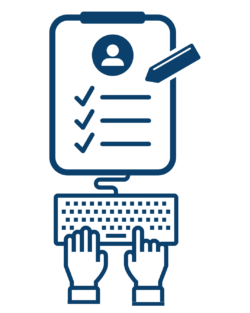 Two (2) electronic documents must be completed to register their newborn with the Office of the Registrar General—the first by our team of professionals and the second by the parents.
Two (2) electronic documents must be completed to register their newborn with the Office of the Registrar General—the first by our team of professionals and the second by the parents.
- The first Notice of Birth document is completed by Medical Records staff within forty-eight (48) business hours of your delivery.
- The parents must fill out the second document electronically (via mobile devices or computer) at the following address: Register a birth (new baby) | ontario.ca.
- You can use the 5-in-1 newborn bundle to request essential government documents for your baby online.
-
- Birth registration.
- Birth certificates with parental information, which takes six (6) to eight (8) weeks to receive by mail for $25 (recommended option), or certified copy of birth registration, which also takes six (6) to eight (8) weeks to receive by mail for $35.
- Social Insurance Number (SIN).
- Registration for Canada Child Benefits (including the Ontario-specific child benefits).
- Request an Education Savings Referral (optional).
To declare the birth of your newborn, you need to provide the following:
- Date of birth
- Baby’s name
- Parental information (names, date of birth and place of birth)
- Hospital name (Hawkesbury and District General Hospital)
- Delivering Physician’s name
- Baby’s weight at birth
- Pregnancy duration in weeks
Ensure you can access a personal computer or a printer to save your receipt in a safe space. If you have any questions, please call
- 1 (800) 461-2156 (outside Toronto, but within North America)
- (416) 325-8305 (in Toronto or outside North America)
or fax (416) 325-3408.
Newborn’s health card
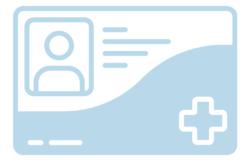
- Ontario residents: You will get a form to sign for your child’s health card during your hospital stay. Once signed, you will receive a temporary paper until you get the actual card by mail. It usually takes a few weeks to arrive.
- Quebec Residents: Please note that your child is covered up to the age of one via the parents’ health cards.
- However, we recommend applying as soon as you receive their birth certificate.
- After receiving their birth certificate, you can obtain your baby’s health card, contact RAMQ at 1 (800) 561-9749 and inform them that your baby was born outside the province. They will send you the necessary RAMQ document by mail. You must complete it and return it with your child’s Ontario birth certificate.
Retraite Québec
As a person who lives in Quebec, you can also receive financial assistance from Retraite Québec. Financial aid is intended for families with dependent children under 18. If your child was born outside Quebec, you must apply for financial assistance, either online at Retraite Quebec—Family Allowance (gouv.qc.ca) or by phone at 1 (800) 667-9625 and let them know that your baby was born in Ontario. Therefore, you must complete and order the birth registration when you return home. |
Please consult a healthcare professional if you experience any of the following symptoms:

- Heavy vaginal bleeding (one pad fully soaked per hour for more than two hours)
- Pain, redness, warmth, swelling (perineum, cesarean wound, breasts or lower limbs)
- Purulent discharge from the perineum or cesarean section wound
- Fever of 38 °C (100.4 °F) or more
- Bleeding from the cesarean section wound
- Persistent Baby blues, anxiety and difficulty coping with daily life and care of the baby
- Emotional instability, insomnia, suicidal thoughts or fear of harming the baby
- Severe headaches
- Upper abdominal pain
- Sudden vision change
General resources for after birth
Feeding your baby
Breastfeeding
Breast milk is all your baby needs for the first six months. We know that some parents choose to give commercial formula from the start for many reasons (resources for commercial formulas feeding are available below.) At HGH, it is your personal decision, and no judgement will be passed upon your choice. If you wish to breastfeed, here are a few things we suggest you do as soon as your baby is born:
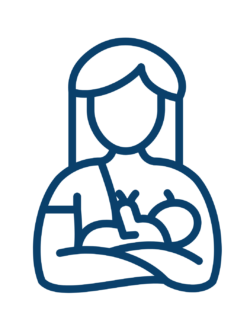
- Skin-to-skin contact
- Make sure the baby latches on well
- Be alert to the baby’s signs of hunger
- Learn to express colostrum and breast milk by hand
- Breastfeed as often and for as long as your baby wants
Here are some relevant resources to help you learn more about breastfeeding:
Province specifics resources
|
| Ontario residents |
Quebec residents |
- Telehealth Ontario:
- Eastern Ontario Health Unit (EOHU):
|
|
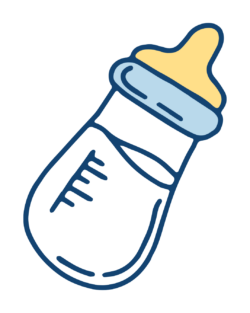
Commercial Formulas
Some families consider using infant formula, either exclusively or as a complement. This decision may be made for medical or personal reasons. Either way, our nurses can teach you how to prepare, feed and transport infant formula. For more information on commercial formulas, visit the following Best Start resources by Health Nexus:
Feeling unsure and wanting all the information? You can also read Feeding Your Child (PDF) from Tiny Tot to Toddler. They’re explaining everything from breastfeeding, bottle feeding, water and solids.
Newborn examinations
- The Ontario Newborn Screening Program can screen for at least 29 diseases. This screening is mandatory; the sample will be taken from the baby’s heel. Newborn Screening Ontario (PDF)
- An Infant Hearing screening for your baby will be offered in the community clinic following discharge (Ontario only). You will fill out a referral form while in hospital, and the program will contact you. For community services in Ottawa and Prescott-Russell, visit Pinecrest-Queensway Community Health Centre or call (613) 688-3979 ext. 3453.
- A routine blood test is done on all newborns before discharge to determine their bilirubin levels. The doctor may order another blood test after discharge, especially for babies at risk for jaundice.
Safe Sleep
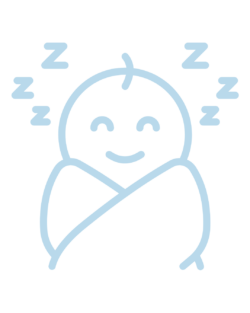
As new parents, you must create a safe sleeping environment for your baby by following the Canadian guidelines for cribs and bassinets. We also recommend that you share a smoke-free room with your newborn baby for the first six months. The safest way to think about creating a baby’s sleeping space is to consider the ABCs—putting your baby Alone, on its Back, in an approved Crib or Cradle. Resources for safe sleep:
Please consult a healthcare professional if your newborn presents any of the symptoms below:
- Auxiliary fever of 37.5 °C / 99.5 °F or more
- Rectal temperature of 38 °C /100.4 °F or more
- Insufficient urine output according to the baby’s age
- Dark, strong-smelling urine
- Weak muscle tone
- Lack of appetite
- Redness, swelling, discharge or foul-smelling umbilical cord
- Involuntary rhythmic movements of the body, arms or legs
|
- Irritability, high-pitched cries
- Drowsiness
- Difficulty waking up
- Hard, dry stools
- Blood in stools
- Vomiting
- Rapid or difficult breathing
- Weight loss
- Yellowing of the skin
|
Newborn Jaundice
Jaundice is common and is a normal part of your baby’s adjustment to life after birth. Your baby will be screened after 24 hours
of life with a heel prick blood test.
What is jaundice?
- After babies are born, some cells in the blood break down and produce a substance called bilirubin. Bilirubin can cause babies’
skin and whites of their eyes to look yellow.
- It can cause baby to be extra sleepy and not feed well.
- Jaundice often happens 2 to 3 days after the baby is born, and slowly goes away over the next few weeks.
- Most babies will not require treatment and jaundice will go away on its own.
If you think your newborn baby is developing jaundice, please consult the PCMCH pamphlet and consult your doctor if you have any concerns. If you are unable to reach your health care provider, take your baby to the hospital.
Resources
YouTube series on newborn care produced by Ottawa Public Health:
Your baby’s crying?
Parents know that their baby cries sometimes. A baby’s inconsolable cries can be very worrying and frustrating for sleep-deprived parents. To help you better understand and cope with your baby’s crying, here’s an educational sheet (PDF) written by CHEO professionals.
Drop-in for Parents – Watch Me Grow (Ontario Only)
- Connect with other parents of children under six in a welcoming environment. Discuss various topics, including breastfeeding, child safety, and development.
- Please visit the Watch Me Grow Drop-in page on the Eastern Ontario Health Unit (EOHU) website for hours and locations.
Circumcision
Circumcision is not offered at the Hawkesbury General Hospital. To obtain these services, here are the closest clinics you can contact:
Please note that costs associated with this procedure are not covered by OHIP.

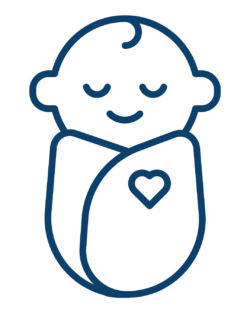

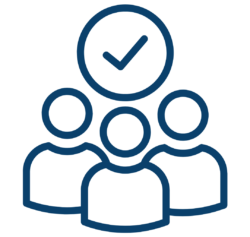
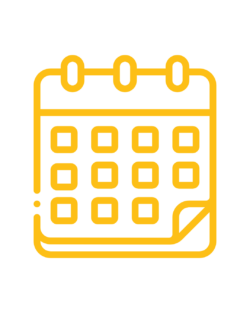 eeks with your obstetrician.
eeks with your obstetrician.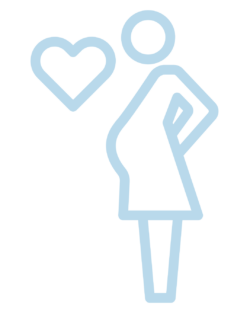
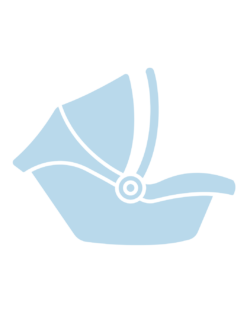
 Two (2) electronic documents must be completed to register their newborn with the Office of the Registrar General—the first by our team of professionals and the second by the parents.
Two (2) electronic documents must be completed to register their newborn with the Office of the Registrar General—the first by our team of professionals and the second by the parents.



